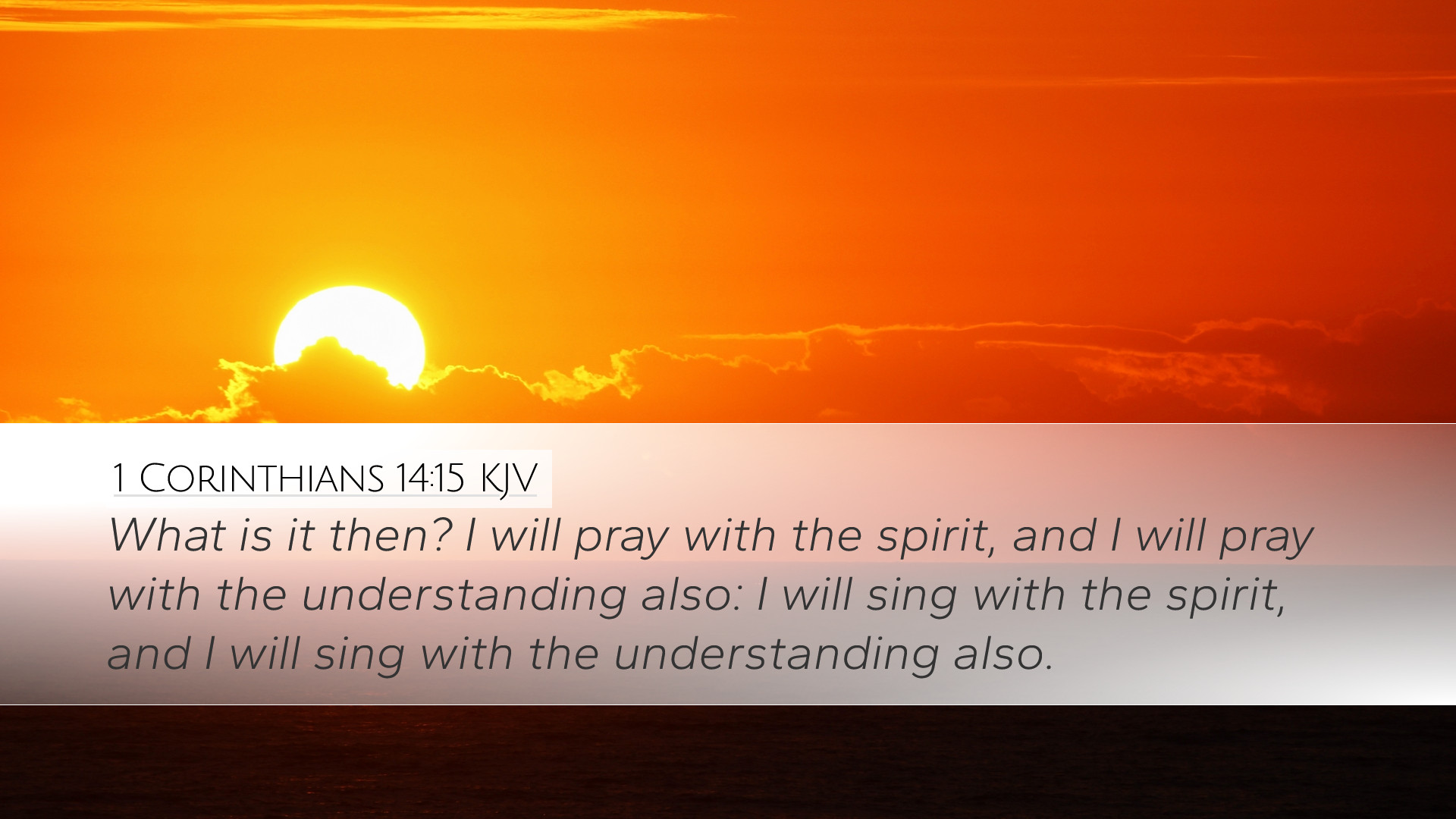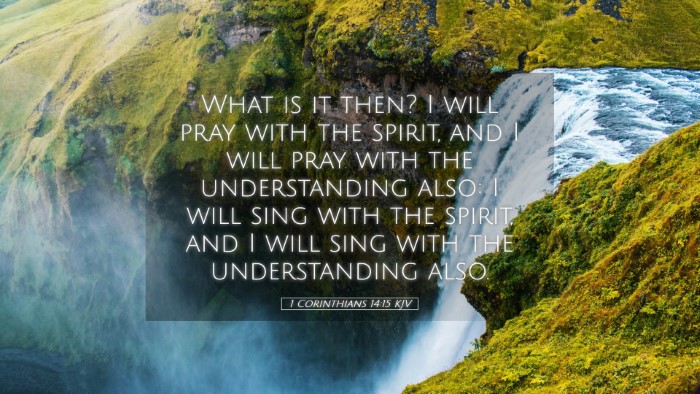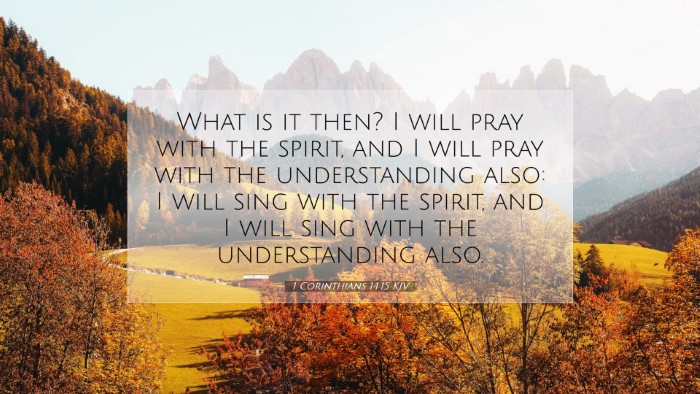Exegesis of 1 Corinthians 14:15
Verse: "What is it then? I will pray with the spirit, and I will pray with the understanding also: I will sing with the spirit, and I will sing with the understanding also."
1. Contextual Overview
The Apostle Paul, in his first letter to the Corinthians, addresses issues related to the exercise of spiritual gifts in the church. Chapter 14 specifically discusses the use of tongues and prophecy, highlighting the importance of edification in corporate worship. This verse serves as a pivotal point, emphasizing a balanced approach to spiritual expressions.
2. The Dual Nature of Worship
Paul underscores the significance of both the spirit and understanding in worship. This duality reflects a holistic approach to Christian practice, combining fervent spiritual experience with cognitive engagement. As observed in Matthew Henry’s commentary, this indicates that worship should not be relegated to emotional outbursts devoid of comprehension.
- Spiritual Engagement: Engaging with the spirit signifies a heartfelt, sincere connection with God.
- Cognitive Understanding: Engaging with understanding suggests a need for clarity and insight into the truths being expressed.
3. Praying with the Spirit and Understanding
Albert Barnes expounds on the necessity of praying with both the spirit and the understanding, indicating that prayer devoid of understanding may lead to confusion. The significance of comprehending what is prayed is vital for spiritual health and communal edification. Here are some notable insights:
- The spirit facilitates deep communion with God, tapping into the mystical and profound aspects of prayer.
- The understanding ensures that the prayer aligns with scriptural truths and theological soundness.
4. Singing with the Spirit and Understanding
Similar to prayer, singing is also an integral practice within the church. Adam Clarke highlights that music in worship should also reflect both spiritual vitality and theological clarity. Singing without understanding may result in hollow expressions of faith. He emphasizes the following:
- The Role of Music: Music should inspire and uplift, serving as a means to articulate praise that resonates in the heart and mind.
- Theological Depth: Lyrics should be grounded in the truth of Scripture, ensuring that worship reflects sound doctrine.
5. Implications for Worship Practices
The verse calls for a re-evaluation of worship practices in congregational settings. It implores pastors and worship leaders to maintain a balance between passionate spiritual expression and intentional understanding. The following points are essential:
- Instruction in Worship: Leaders should provide teaching on the meaning of prayers and songs used in worship to ensure congregants can fully engage.
- Encouragement of Participation: Active involvement in worship through understanding will enhance the congregational experience, encouraging both fervor and discernment.
6. Conclusion
In 1 Corinthians 14:15, Paul presents a blueprint for effective worship that transcends mere ritual. It is an invitation for believers to engage in genuine expressions of faith that are both spiritually enriching and intellectually satisfying. As emphasized by Henry, Barnes, and Clarke, this balance is essential for the health of the church, fostering an environment where both spirit and truth are honored in worship.


